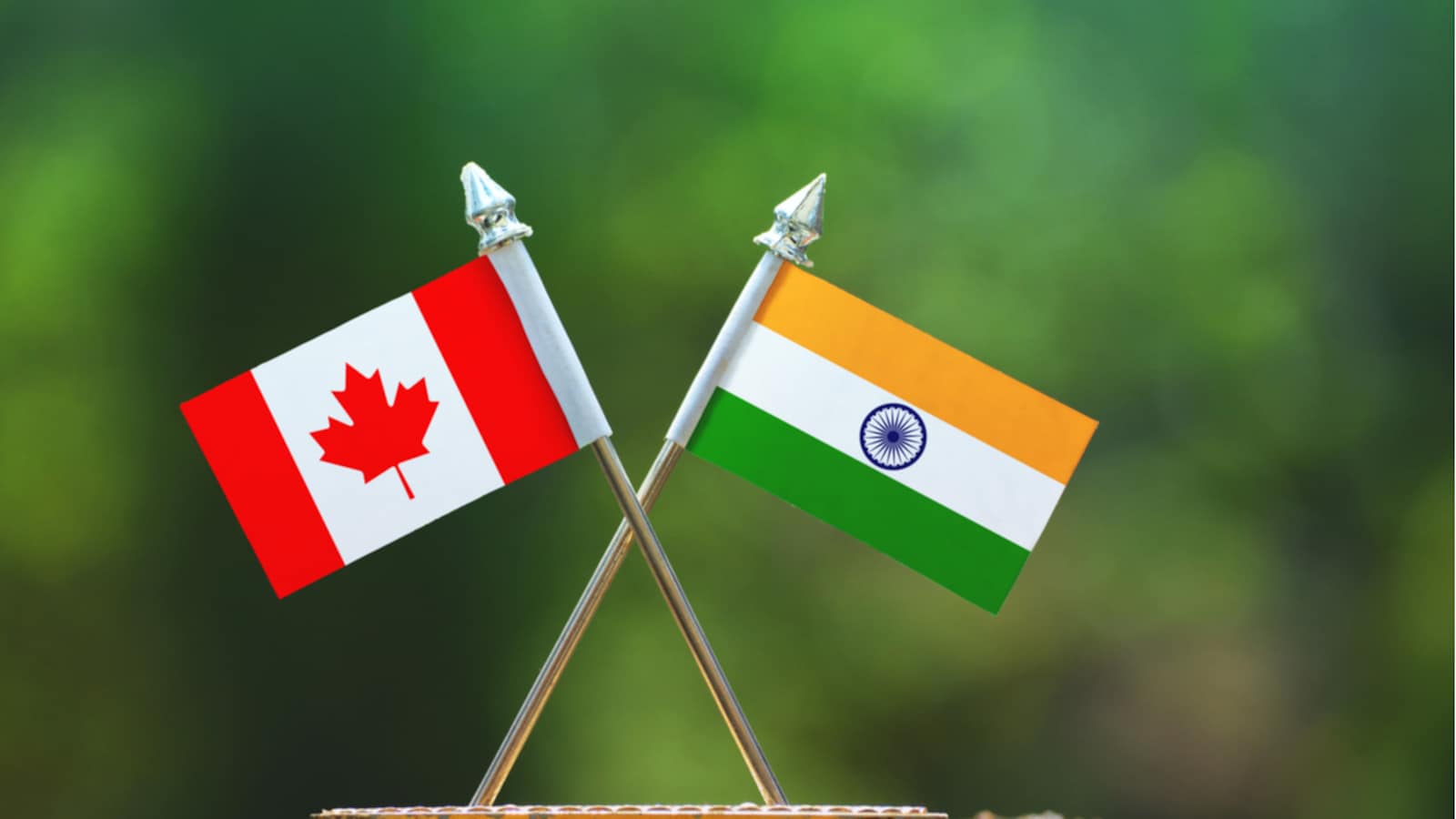
Tensions between India and Canada have risen dramatically in recent days as a result of Canadian Prime Minister Justin Trudeau’s allegations that Indian operatives were involved in the death of Khalistani terrorist Hardeep Singh Nijjar. The charges have been described as “absurd” by India. Several tit-for-tat acts have occurred in the last several days, with both governments removing each other’s envoys and issuing travel advisories warning of risks in each other’s borders. India today banned the issuance of visas to Canadian citizens “until further notice.”
Here’s a look at what sparked tensions between New Delhi and Ottawa and how they grew into a full-fledged diplomatic spat. In March, Khalistani protests outside Indian missions and consulates in Canada prompted the centre to summon the Canadian High Commissioner. This had taken place amid a massive crackdown against Khalistani preacher Amritpal Singh in Punjab. An External Affairs Ministry statement had then said it is “expected that the Canadian Government will take all steps which are required to ensure the safety of our diplomats and security of our diplomatic premises”.
Hardeep Singh Nijjar, a Khalistani terrorist, was killed by masked gunmen in the parking lot of a gurdwara in British Columbia
About two months later, External Affairs Minister Dr S Jaishankar hit out at the Canadian administration over a rally in Brampton that featured a float depicting the assassination of former Prime Minister Indira Gandhi. Suggesting that “vote bank politics” could be the reason behind Canada not cracking down on separatists, Dr Jaishankar said, “I think there is a larger underlying issue about the space which is given to separatists, to extremists, to people who advocate violence and I think it is not good for relationships and not good for Canada.”
Hardeep Singh Nijjar, a Khalistani terrorist, was killed by masked gunmen in the parking lot of a gurdwara in British Columbia, Canada, on June 18. The Integrated Homicide Investigation Team of Canada launched an investigation, but no arrests have been made. A Khalistani organization distributed leaflets weeks after Nijjar’s murder that blamed Indian High Commissioner to Canada Sanjay Kumar Verma and Consul General Apoorva Srivastava for the terrorist’s death. The two diplomats were referred to as “killers” in flyers announcing a July 8 rally in Toronto. As a result, New Delhi raised the issue with Canadian authorities.
Canada assured Indian ambassadors of their safety and called the “promotional material” circulated ahead of the rally “unacceptable.” During the G20 conference in New Delhi from September 8 to 10, India made clear its displeasure with Canada’s response to Khalistani activity on its soil. Prime Minister Narendra Modi expressed concerns to Trudeau about “continuing anti-India activities of extremist elements in Canada” during a bilateral discussion on the margins of the summit. “The link between such forces and organized crime, drug syndicates, and human trafficking should concern Canada as well.” It is critical for the two countries to work together to combat such dangers,” read India’s strongly worded statement on the bilateral talks.
Canada will always “defend freedom of expression… conscience and peaceful protest,” says Trudeau
Trudeau, for his part, stated that he had raised Khalistan radicalism and “foreign interference” with Prime Minister Modi several times. Canada will always “defend freedom of expression… conscience and peaceful protest,” he told the media, adding that it will also prevent violence and push back against hatred. “It is important to remember that the actions of the few do not represent the entire community or Canada. The flip side of it, we also highlighted the importance of respecting the rule of law, and we did talk about foreign interference,” he said.
The heated debate was followed by Trudeau’s humiliating travel problems, in which he was unable to return home owing to a hitch on his jet. The Canadian side declined New Delhi’s offer to fly him home. After a 36-hour delay and a high drama as the aircraft’s issue was addressed even as a backup plane was on its way, Trudeau finally left for home. On Monday, Trudeau made the astonishing assertion that Canada’s security officials had cause to think that “agents of the Indian government” were responsible for the killing of Nijjar, a Canadian citizen.
The inaction of the Canadian Government on this matter has been a long-standing and continuing concern
“Any involvement of a foreign government in the killing of a Canadian citizen on Canadian soil is an unacceptable violation of our sovereignty. It is contrary to the fundamental rules by which free, open, and democratic societies conduct themselves,” he was quoted by news reports as saying. New Delhi responded with a stern statement, saying “allegations of Government of India’s involvement in any act of violence in Canada are absurd and motivated”.
“Similar allegations were made by the Canadian Prime Minister to our Prime Minister and were completely rejected. We are a democratic polity with a strong commitment to the rule of law. Such unsubstantiated allegations seek to shift the focus from Khalistani terrorists and extremists, who have been provided shelter in Canada and continue to threaten India’s sovereignty and territorial integrity. The inaction of the Canadian Government on this matter has been a long-standing and continuing concern,” the External Affairs Ministry said.
“The space given to a variety of illegal activities in Canada, including murders, human trafficking, and organized crime, is not new,” it continued. When Canada dismissed a top Indian diplomat, New Delhi retaliated in kind. Both countries have issued travel advisories, warning residents not to visit each other’s regions.
